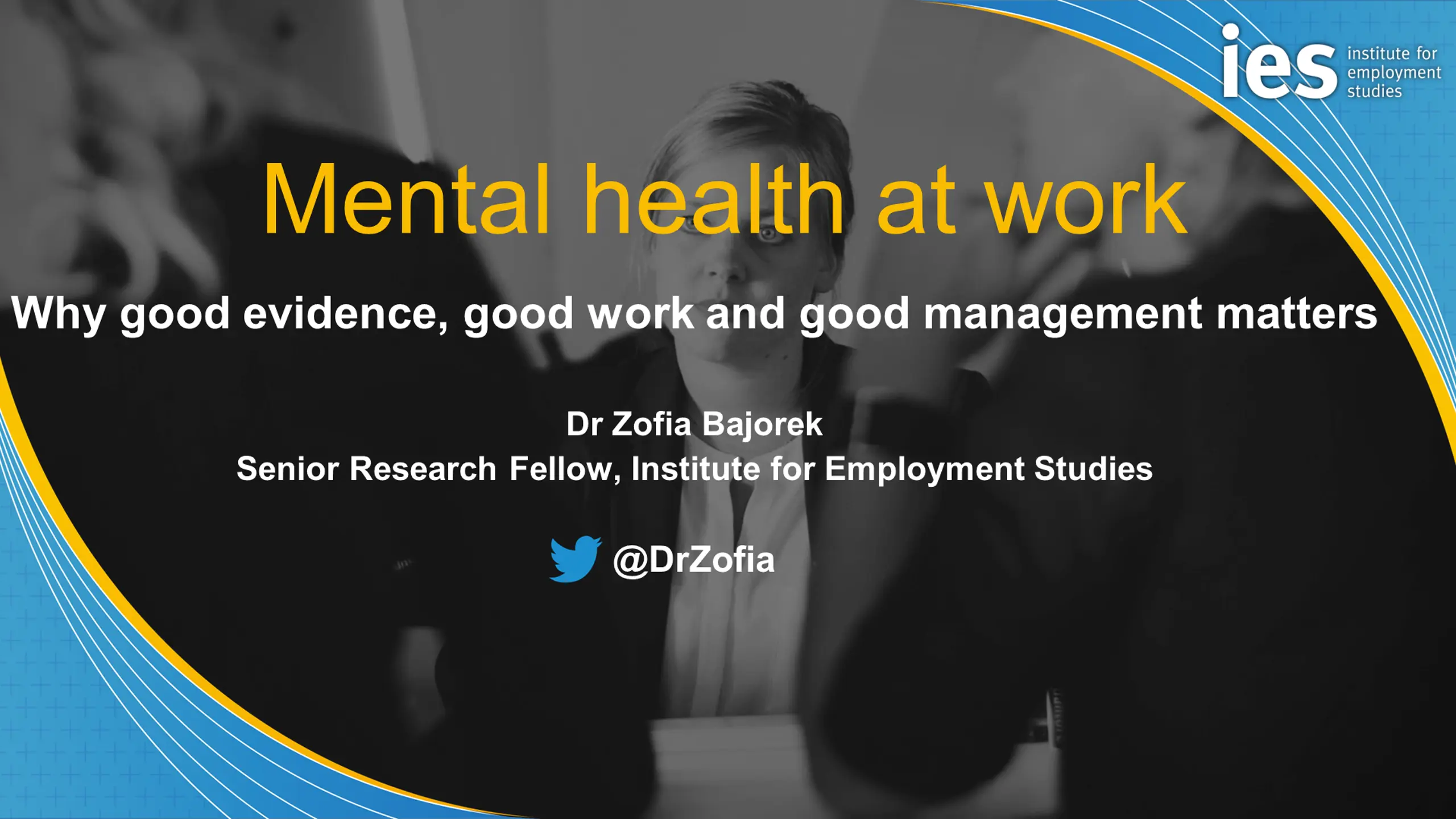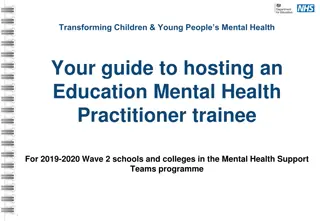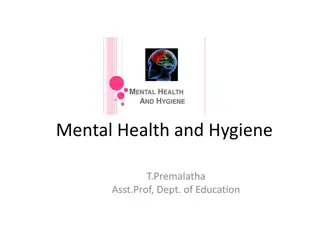Mental health at work
The importance of mental health in the workplace and the need for evidence-based interventions and good management. This presentation outlines key takeaways, the context for mental health at work, and the role of line managers.
Download Presentation

Please find below an Image/Link to download the presentation.
The content on the website is provided AS IS for your information and personal use only. It may not be sold, licensed, or shared on other websites without obtaining consent from the author.If you encounter any issues during the download, it is possible that the publisher has removed the file from their server.
You are allowed to download the files provided on this website for personal or commercial use, subject to the condition that they are used lawfully. All files are the property of their respective owners.
The content on the website is provided AS IS for your information and personal use only. It may not be sold, licensed, or shared on other websites without obtaining consent from the author.
E N D
Presentation Transcript
Mental health at work Why good evidence, good work and good management matters Dr Zofia Bajorek Senior Research Fellow, Institute for Employment Studies @DrZofia
Presentation Outline: About IES Main take away points Context The evidence about wellbeing interventions The importance of good work Line managers as the squeezed middle The way forward for mental health at work
About IES Advocate for evidence-based policy and practice in world of work Build and share the evidence base to inform and educate policymakers and employers to improve world of work Research and advisory work Research and advisory work with Government and employers in the public, private and third sectors to use evidence and data to inform strategic decision-making on people management and employment policy Convene practitioner networks Coordinate networks of practitioners in HR and employment policy to share knowledge and inform practice
Main take-away points Poor workforce health is a risk to business, and is likely to get worse as workers age Good workforce health is a fantastic asset, and we can and need to do so much more to convince employers to invest in it Few workplace health interventions have strong evidence base to support them, and those that do tend to be considered as unglamorous or too hard to do. We need to build on employer interest in wellbeing by helping them to implement good practices and undertake pragmatic evaluations of their impact
Wellbeing at work Employees are a company s greatest asset. They re your competitive advantage. You want to attract and retain the best; provide them with encouragement, stimulus and make them feel that they are an integral part of the company s mission
Why are line managers important? People join an organisation, but leave a manager If I could wave a magic wand, the one thing I would do is to improve the relationship between line managers and employees The nature and characteristics of the jobs that employees are required to do in terms of satisfaction, reward and esteem and a degree of control in the task are vitally important to them. The line manager has a key role (Dame Carol Black)
The role of managers In some ways, it is easier to ask what line managers don t do Line managers are seen to play a pivotal role in: - improving workplace wellbeing - providing employee support - performance management - supervision - understanding and facilitating development opportunities - work planning - monitoring sickness absence - .their job!
The squeezed middle Source: Acas, 2014
Is it time to rethink good management? Desire and ability to manage vs technical ability Measuring emotional intelligence Training vs resources given Feedback Line management bandwidth The health of line managers themselves
The way forward for mental health and work Time to change the narrative to a capability-based perspective rather than the deficit-based perspective that often dominates Need senior management buy-in both hearts and minds Time to think about the good work approach the evidence is there! Let s focus on prevention make use of OH and VR Time to focus on job redesign and job crafting a focus on Work Ability Co-creation and active worker voice in intervention design and implementation role of line manager is key here Evaluation and capturing learning collating evidence of best practice
About IES: The Institute for Employment Studies (IES) is an independent, apolitical, international centre of research and consultancy in public employment policy and HR management. It works closely with employers in all sectors, government departments, agencies, professional bodies and associations. IES is a focus of knowledge and practical experience in employment and training policy, the operation of labour markets, and HR planning and development. IES is a not-for-profit organisation. www.employment-studies.co.uk Follow me on Twitter @DrZofia Email: zofia.bajorek@employment-studies.co.uk























